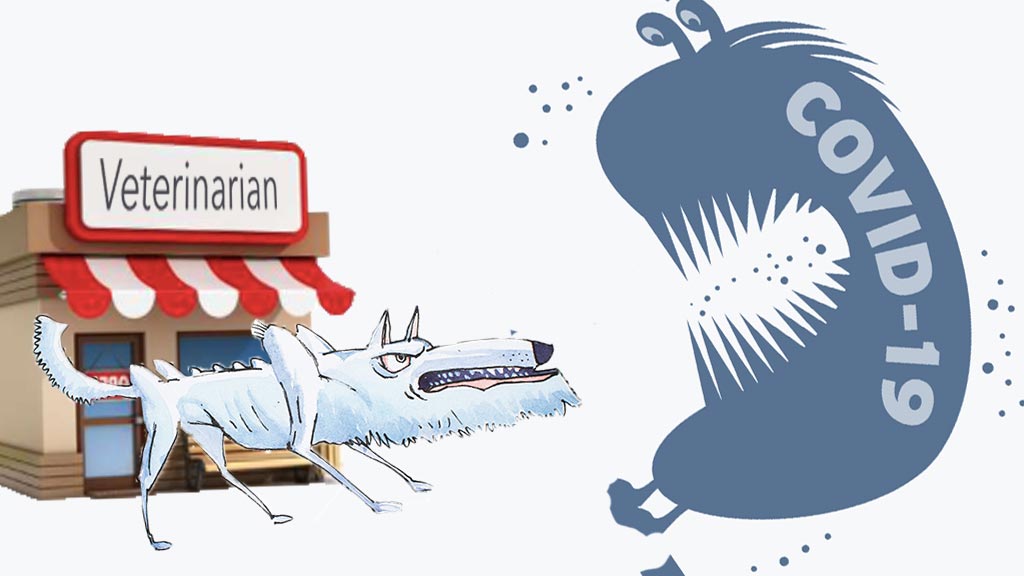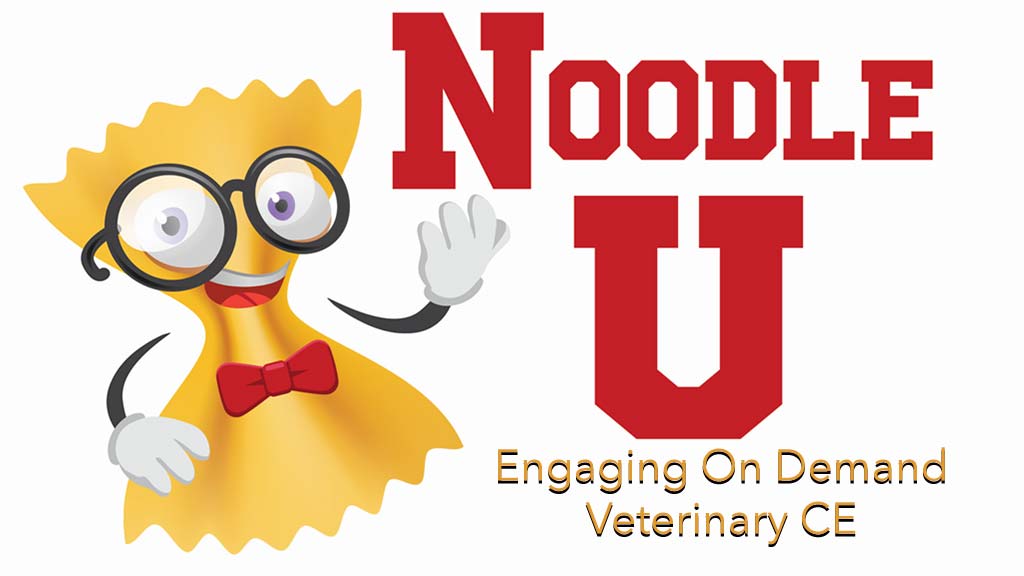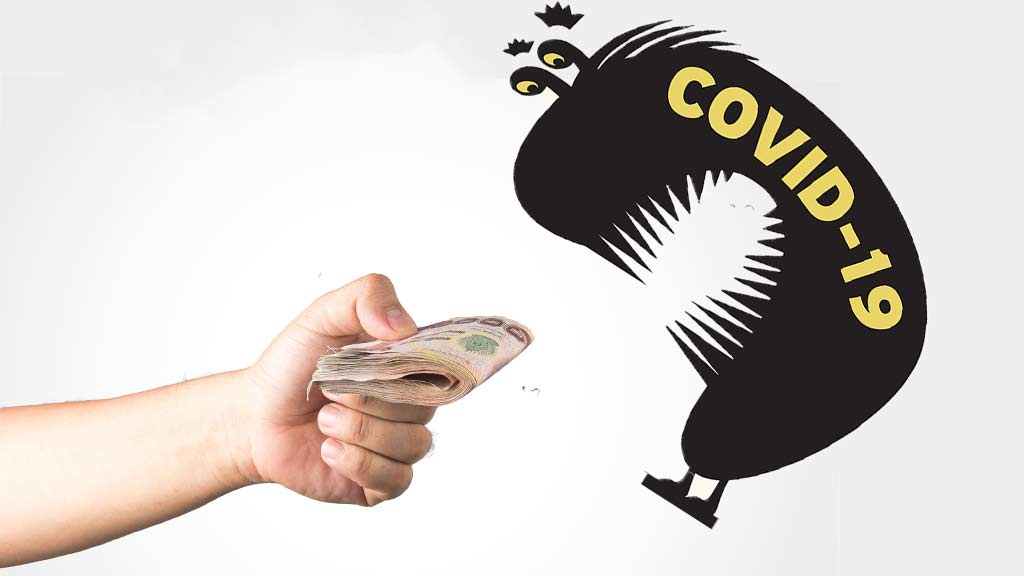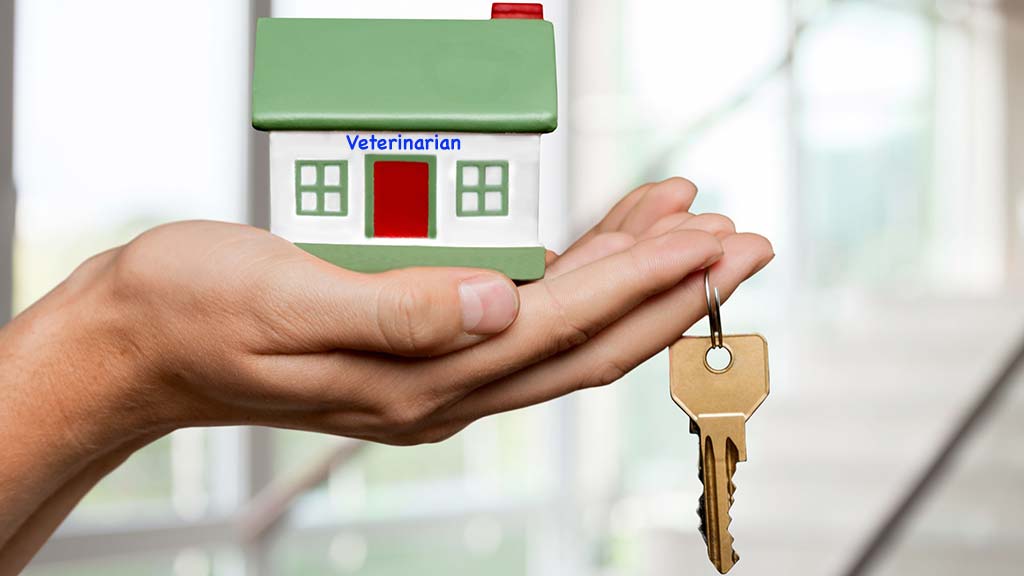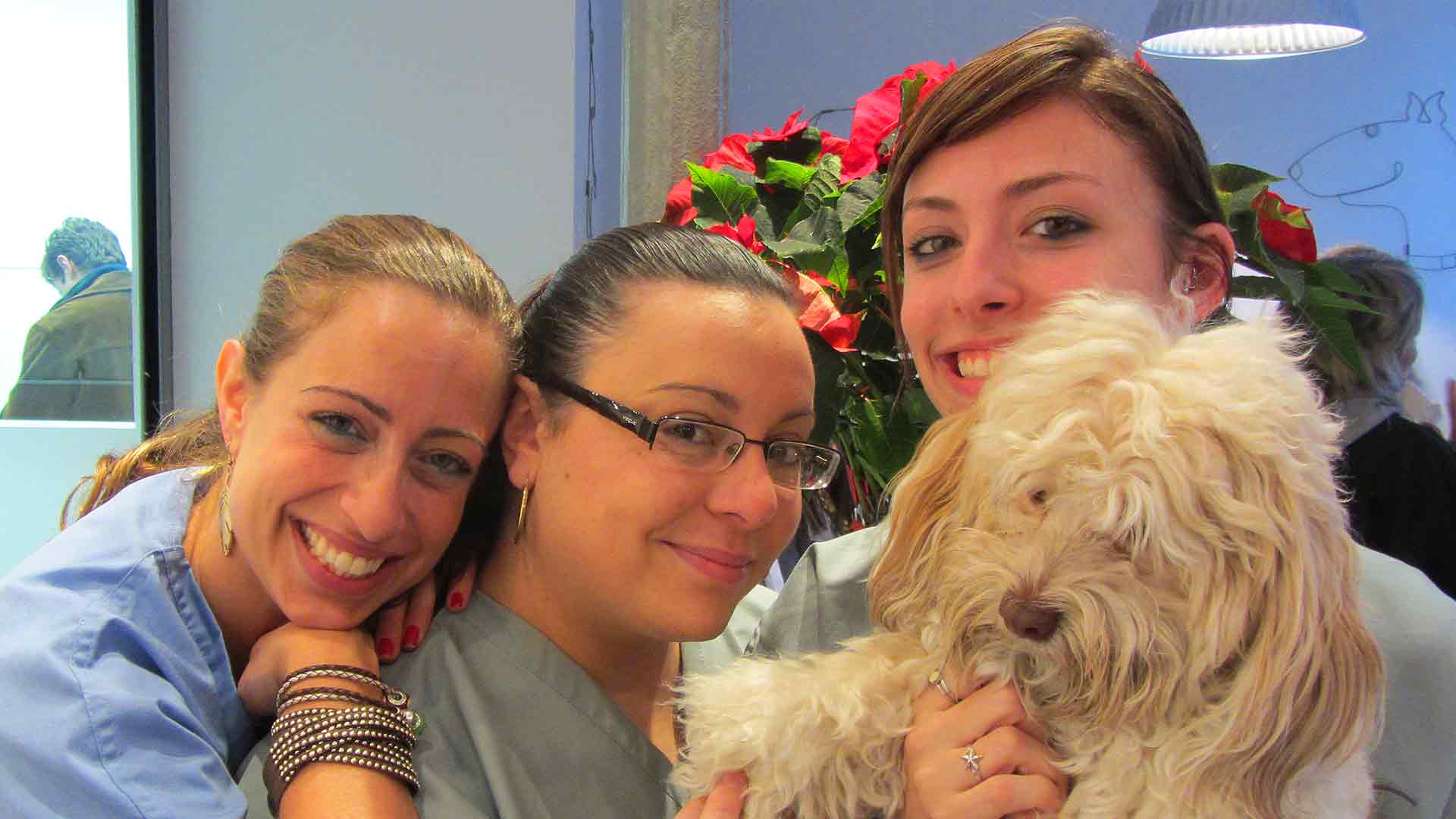By mid-June, much of the North America’s shelter-in-place restrictions will be lifted and the full impact of the shutdown will come more clearly into view.
Veterinary hospitals will try to return to business-as-usual, but a global recession, continued outbreaks of disease, employees unwilling to return to work, and lingering fears of social contact may make that an elusive goal. Here are five challenges that you and your team can expect to confront in the months ahead and what you can do to mitigate their impact on your business and your staff.
Contents
Five Challenges
1) Global Recession
The COVID-19 world-wide shut down has fractured supply chains, decimated the service industry, rattled American’s confidence in the economy, fueled riots, and spooked banks into tighter restrictions on loaning money. All of this spells bad news for businesses that expect to go back to the kind of revenue they were earning pre-COVID-19. Though a recession (Reade Pickert, 2020) is defined by most as two quarters of negative growth or by the National Bureau of Economic Research as a, ‘significant decline in economic activity spread across the economy, lasting more than a few months’, waiting for the final declaration may be a matter of course. As a senior fellow at the Hamilton Project said,
“When economic historians parse through the economic data in the years ahead, they will label March 2020 the beginning of a recession, marking the end of an economic expansion that began over a decade ago.” Jay Shambaugh for the Brookings Institute.
Many economists believe the recession is here, now the question is how long will it take for things to recover (Shambaugh, 2020).
With lessons learned from the 2008 financial crisis still in recent memory, the federal government has reacted with haste and largesse. To date, Congress has appropriated more than 3 trillion dollars to mitigate personal and business losses, but effective distribution of the funds, in the absence of any kind of precedent or existing infrastructure, has been problematic (Cowley, 2020) and some would argue ineffective (Eisinger, 2020). Still, Congress continues to debate additional funds as a curative. If our government succeeds at shoring up enough businesses and stopping supply chains from breaking, a relatively quick recovery may be possible.
But we are a global economy (Panel of Economic Commentators, 2020), and our long-term success is not only predicated on how businesses fare here (view the COVID impact on jobs by state), but abroad. Also, consumer confidence has been shaken hard, and there is an undeniable shift (Baker, 2020) in the way that we now think about dining in restaurants, traveling by plane, conducting business meetings, and even going outside. It remains to be seen if the world governments’ stimuli and leadership will win out over the pall (Begley, 2020) that COVID-19 has cast over the every citizen’s sense of safety in crowds and life in public. Jump to resources for economic forecast 2020-21.
Another casualty of the shutdown will be the high sales prices that veterinary practices have been offered over the past 48-60 months. The days of purchase offers in the range of 8-12 times a practice’s EBITDA are likely finished all but for the most strategically important hospitals; however, that doesn’t mean the market for selling has dried up. In an article on NuWire Investor following the 2008 financial meltdown, Andrew Cagnetta, CEO of Transworld Business Brokers, said:
“A good business to buy in this economy is one that was making a lot of money and is still making a little money because buyers will be poised to make a lot of money again when the crisis if over. You can always point to healthcare as a good sector in which to buy.” Andrew Cagnetta, CEO of Transworld Business Brokers, NuWire Investor (NuWire, 2008)
Veterinary practices are just such businesses (Business Strategy Hub, 2020). Though the data is anecdotal, the practices that I have checked in with across the U.S. are, for the most part, open and operating at full capacity, albeit a capacity restricted by social distancing protocols. It may be that veterinary practices pull through this downturn as they always have: with marginal profits and thus will be targeted as safe buys when matched against other down-economy investment opportunities.
2) There Will Be No All Clear Date
COVID-19 infections may continue to crop up regionally, dampening economic activity and in some cases instigating community-wide lockdowns. As of June 24th, 2020, Texas governor, Gregg Abbot stepped back the easing of restrictions in his state and asked citizens to stay at home.
Consumers may also choose to wait out another month or two at home over lingering fears of infection. One of your team members may test positive for the virus forcing all of your employees to self-quarantine and your business to close. As a manager, you’ll likely implement some policy that requires anyone with symptoms of illness to stay home, but what if the employee has already used up his or her sick leave and can’t afford the time off? Expect a dizzying array of what-should-I-do scenarios as team members exhibit mild symptoms of allergies or illness that you and your coworkers fret may be signs of COVID-19.
Recent urban civil unrest may contribute to hotspots of infection throughout the U.S. and itself be a source of interruption to business. Though America has cycled through waves of rioting and demonstrations throughout its history, this particular cycle may be especially volatile and long-lasting fueled by a convergence of high unemployment, deep divides of wealth distribution, and expanded urban inequality.
3) Ongoing Social Distancing, Disinfection Practices and PPE Use
Gloves, masks, and social distancing will be with us for months to come (Zheng, 2020). Hand sanitizers were already on the rise at grocery stores, in airports, and other public places; now expect to see them grow in popularity.
OSHA, the CDC, the WHO, and AVMA have all weighed in on workplace safety in the wake of COVID-19. If you’re wearing a mask and gloves by September of this year, it will be just as much because of the cautionary guidelines set forth by various government and professional entities, as it will be out of concern for your own personal safety.
Personal Protective Equipment (PPE) and other safety measures will add cost and time to appointments. They will also have an impact on how we are perceived. Engaging in delicate discussions about end-of-life or financing with half of our face concealed will confound our ability to demonstrate empathy and register understanding. Says Agneta Fischer, a social psychologist at the University of Amsterdam:
“If you’re in a sort of neutral situation with someone you don’t know, you’re looking for small signals of friendliness or politeness. Humans often use these cues to mimic what the other person is doing, a social tool to smooth interactions. [But when you’re wearing a mask], it’s much harder to see those small signals. [We can see them in your eyes], but only if your smile is very strong,” Agneta Fischer, National Geographic (BORUNDA, 2020)
Facemasks will muffle our medical orders and prevent others from reading our lips, a surprisingly important component of having our words understood and heard (Technology.org, 2018).
4) Cash Strapped Clients And Cautious Spenders
Thus far, some workers have traversed the COVID-19 shakeup without much ado. They’ve endured home confinement, but they have continued to work remotely or have been furloughed with full pay. For companies like Zoom (Kim, 2020) and Amazon (Garcia, 2020) the pandemic hasn’t been a hardship; it’s been a windfall, albeit a kind of Pyrrhic one. But for restaurant workers and other members of the service community, farmers, the travel industry, and the poor, the pandemic has created hardship, sometimes crippling. Depending on where you live (Mark Muro, 2020) and what kind of industry is in your area, you may find that your clients don’t have the money that they once had for pet care, even if it’s urgent care. Owners of aging or chronically ill dogs may feel they have to relinquish ownership (Hsin Yi Weng, 2020). Others will opt for pet euthanasia over more costly treatment options.
Depending on the length and severity of the recession, it won’t just be how much money people have; it will be their willingness to part with it. According to a University of Michigan study (Surveys of Consumers University of Michegan, 2020), the Index of Consumer Sentiment dropped 20 points from March to April 2020 signaling a drop in American’s faith in the economy and their willingness to spend. According to MarketPlace (Hartman, 2020), that number was expected to worsen, but as of June 24th, extensive data from Deloitte is not supporting that expectation.
5) Persistent Callouts and HR Issues
Regardless if you are permitted to return to normal business activity, regional outbreaks may cause local school and business shutdowns that will force your parent-workers to stay home with children. You may receive confirmation that a team member is sick with COVID-19 and be forced to shut down until all the members of your team have either been tested or quarantined.
Employees may fear returning to work (McQuivey, 2020) and will resign. Some furloughed employees may qualify for both unemployment and additional CARES Act funds and find that in its haste to rescue workers from economic catastrophe, the federal government has given them more money to stay at home than to return to work (Hansen, 2020 Also see ‘What to Do When Employees Refuse to Return to Work) Others will exceed the maximum number of paid time hours that they have left for the year, even exhausting the additional ones allowed for by CARES (U.S. Department of Labor Wage and Hour Division, 2020). Expect a significant portion of your and your practice manager’s time to be consumed with addressing unemployment claims, CARES Act-related Payroll Protection Plan issues (Wiessmann, 2020), and applications to other aid packages as they become available.
Summary of Challenges
COVID-1919 will go down as a stark milepost in our nation’s history. It remains to be seen if it signals an abrupt change in the course of our country’s financial strength and our way of living, or merely a sign that the road ahead will be tough going for the next few months. What follows are some thoughts by our industry’s most prominent experts and precautions you can take to protect your business regardless of what the COVID-19 aftermath portends.
Preparing Your Business For Recession
- Do your best to hold onto cash. Request forbearance from your creditors.
- Reduce your inventory and use any existing down time to review veterinary inventory management best practices.
- Use the resources page that we have assembled for you to stay abreast of aid packages for which your business may be right.
- Review your exit strategy. Practice owners interested in selling should talk with potential buyers now.
- Review any changes that you have made to your workflow during COVID-19. As a team, devise ways to improve efficiency and lower costs.
- Manage your high-interest debt.

Phil Zeltzman, DVM, DACVS
Ask An Expert: Dr. Phil Zeltzman
Bash: What are the personal skills and financial strategies veterinary leaders need to ride out economic downturns successfully?
Dr. Zeltzman: “You can still thrive through a recession if you stick to the basics, including streamlining inventory, keeping a tight leash on payroll and overtime, as well as ruthlessly eliminating unnecessary expenses.
“Help cash strapped clients with the classic payment options: plastic, insurance, third-party payments, payment plans etc. However, if a client is truly unable to take advantage of these options, be more resourceful.
“I’ve heard of colleagues trading services with clients: an artist painted an entire kennel with stunning murals; a restaurant owner provided several meals for the staff; and a photographer took beautiful portraits of team members and their pets.
“Veterinary professionals are notoriously creative. Now is a great time to put these skills to use, to find joy in problem solving, and to leverage adversity to build stronger relationships with clients and coworkers.
Phil Zeltzman, DVM, DACVS, is a board certified surgeon living and working in Pennsylvania. He is the co-founder of the Veterinary Financial Summit (www.vetfinancialsummit.com), the only conference solely dedicated to personal and practice finance.
There Will Be No All Clear Date
- Revisit your sick leave policy. Decide how you will handle employees’ potential exposure to COVID-19; when it’s okay for COVID-19-positive employees to return to work; how you will manage employees’ varying fears about infection; etc. Remember that your decisions have optics, both within your business and by the outside community.
- Use the resource page to review our plan for returning to work post COVID-19. It takes into consideration the latest recommendations by the CDC and OSHA.
- Start interviewing telemedicine/telehealth service providers. Prior to Covid-19, platforms like BabelVet were already destined to be part of our day-to-day workflow much as email, social media, and text messaging have found their way into our work lives. A tool like BabelVet allows us to offset the time-consuming safety protocols of social distancing and PPE, to deepen our relationship with clients, to leverage our support staff, and to address many consumers’ interest in convenience and on-demand help.
- Another tele-health tool that all practices should explore is VitusVet. Even if you are still a long way from taking your exams and other billable services online, VitusVet offers you streamlined two-way text messaging that has been shown to reduce jammed telephone lines by 70%! Moreover, clients prefer the convenience and speed of text messaging over phone calls. Use it to automatically follow up with clients, send reminders, and confirm appointments. You can also use it to send clients pre-exam questionnaires and to upload their responses directly into your PIMS. But don’t take me word for it; VitusVet is currently offering a free trial. Go to the VitusVet website and find out more.

Eric Garcia
Ask An Expert: Eric Garcia
Bash: Has the Covid pandemic proved to you that telehealth is here to stay? How do you envision we will be using telehealth on a day-to-day basis in the near future?
Eric: “We learned this from the last recession – people are more likely to go online to seek healthcare advice for their pets when times are financially tough. The increase in demand is simple: people are looking to save money. Use this information to your advantage. Let pet owners know that telemedicine resolves concerns now before the condition becomes more complicated and requires a more expensive, in-person visit later.
“But here is something else, Bash. As you say, there is no clear date for the end of COVID. Telehealth platforms allow us to stay in touch with our clients, to continue to provide care, and to remain a part of their pet’s lives even when our doors are shuttered. These kinds of advantages shouldn’t just be tossed aside once COVID concerns wane.
“Lots of practices are eager to open back up and revert back to the way that business was always done. No! Great innovation was born out of COVID and telemedicine is prominent on the list. It can be a new vertical of revenue for our practices; it can increase our ability to interact with clients; deepen the bond that they feel for us; and can give us a serious competitive edge.
“You ask me if telehealth is here to stay. Lots of practice owners our asking themselves that same question, The ones that answer ‘absolutely’ are the ones that will be the biggest winners.”
Ongoing Social Distancing, Disinfection Practices and PPE Use
- Use the Virox Animal Health website to train your team members on the 7 Steps to Good Infection Prevention for your Facility
and to build a disinfection protocol specific to your business. The tool is excellent. - If you are compelled to follow specific local or regional guidelines on the use of PPE, then do so after walking through the protocol for how they will work at your practice so you can ensure that their use is efficient and cost effective.
- Discuss the clinical look of masks, gloves, and gowns and how you can work around them to continue to instill a sense of warmth, trust, compassion and understanding, to both clients and to one anther.
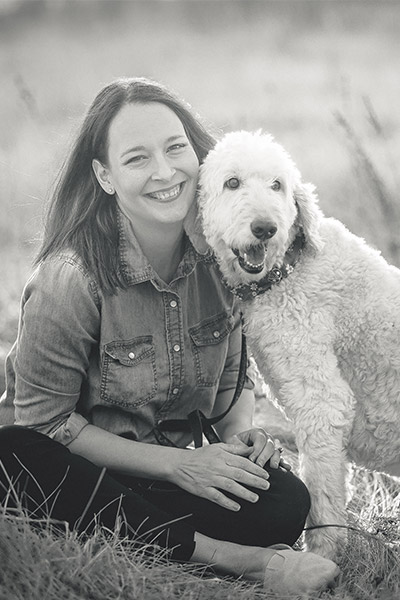
Sarah Wooten, DVM, CVJ
Ask An Expert: Dr. Sarah Wooten
Bash: What are some ways we can use PPE to protect ourselves, but disarm the alienating effects that these masking garments have on our clients?
Dr. Wooten: “It is daunting, scary, and intimidating for veterinary clients to enter your clinic and see the people that they have known and loved for years covered in protective wear. PPE takes away our humanity and our ability to communicate using non-verbal facial cues, a huge part of human communication.
“The COVID-19 crisis has already instilled fear, a sense of isolation, and vulnerability in our clients. When you add that clients may be scared about their pet’s condition and that they can’t hear or ‘read’ you very well, you have a recipe for a reactive client and unproductive communication.
Cash Strapped Clients
- Review local and national economic forecasts as a way to understand your community’s progress through the recession.
- Pet owners will look to online sources for answers. Write material that helps pet owners find the answers that they need, but also introduces them to the affordable care that your practice provides.
- Use platforms like BabelVet to offer tele-advice to clients. Tele-advice is not unlike the information you are already providing existing clients and phone shoppers; but by using the BabelVet platform, you’ll be able to charge for your team members’ time spent on the phone. In a down economy, pet owners are going to look online for solutions to their pets’ healthcare needs. You can advertise your tele-advice service as a way to capture some of these shoppers, to introduce them to your practice, and convince them of the value of a veterinary visit.
- Do not resort to knee jerk reactions to lower prices or give away services unless they are part of a larger structured strategy to grow overall revenue.
- Younger pet owners are likely to more quickly adapt to the post COVID-19 economy than older pet owners. These young people approach healthcare more holistically and may be looking for alternatives to the traditional allopathic model where an annual veterinary visit centers on the administration of vaccines. Think about what your young clients want and use this opportunity to retool your business to be more in line with current trends in pet ownership like offering vaccine titers. Companies like VacciCheck offer in-house titer testing kits that deliver results qualitatively the same as reference lab tests, but are only 1/5th the cost.
- Weigh the optics of offering payment plans against the risk of default. Explore the providers of veterinary financing found on the resource page.
- Companies like VitusVet produce a tablet that can manage customized payment plans for any client that has a valid credit card. Simply use the portable tablet to show the client an estimate of their services, agree to how many payments that the bill can be broken down into, and let the tablet manage the rest. In cases where the client defaults, practices are guaranteed 92% of the total bill. The tablet is also easy to operate and can be used for full payment at the time the services are rendered or, in the case of plans, used for the initial payment. Just hand the client the tablet and let them manage their own credit card swipe and invoicing.
- Review your policy on pet relinquishment and convenience euthanasia. Provide your team members with sensitivity training on the topic.
- Keep lines of communication to the shelters open for more information on how the economic downfall is affecting a broader sampling of your pet owning community.

Denise Tumblin, CPA
Ask An Expert: Denise Tumblin, CPA
Bash: Denise, we’re all concerned how the recession will impact our business and our clients. What advice do you have for us?
Denise: “Be an inspirational leader for the team to maintain and boost morale. Business owners have concerns during an economic downturn, and so do your team members. Be transparent. Keep the team informed to ease their concerns. Make them part of the conversation. Seek their input on opportunities they see to maintain the success of the practice.
“Be a resource for team members. If you are faced with the need to furlough people or reduce work hours, be sure they know about the governmental programs/resources that are available to help them. For example, the state of Ohio has a SharedWork program that allows employees to file for partial unemployment if their hours/wages are reduced. What resources does your state have available?
“Practice effective financial management. Managing cash flow is imperative at all times and never more so than during a downturn. Pay attention to your revenue and expenses. Realistically reduce spending where possible. Get a handle on inventory management and capture of charges. Continue to look for opportunities to grow revenue.
“Continue strategic planning to survive the downturn and thrive in recovery. Continue to set goals for the coming year and develop a plan of action to accomplish your goals in spite of the downturn. Accomplishing your goals may be delayed because of the crisis, but don’t let it stop you from planning for the recovery, which hopefully will happen soon.”
Denise Tumblin, CPA, is owner and president of WTA Veterinary Consultants. Her Well-Managed Practice Benchmarks Study, an annual review of benchmarks and trends from 100 of the best practices in the U.S., is widely read and referenced.
Increased Callouts and HR Issues
- Review the rules for FT and PT layoffs in your state.
- Be mindful of the internal and external optics of lay offs. Handle such discussions with delicacy and respect.
- Stay transparent with your team regarding your financial needs as a business owner, but don’t use your predicament to reproach your staff for what you regard as their insensitivity to your plight.
- As a team, generate a list of general questions and cases that can be managed using telemedicine. Telemedicine will enable you to see caseload without so many support team members and/or to manage your case load around your staff shortages.
- There will likely be an uptick in the number of people looking for employment. Revisit the way you hire employees and try to take as much of it online as you can. Between the turnover of your existing staff, and the number of unemployed workers hitting the job market, this will be a great time to upgrade the overall quality of your team.

Dave Nicol, DVM, BVMS, Cert Mgmt MRCVS
Ask An Expert: Dr. Dave Nicol
Bash: Covid robbed many Americans and Canadians of steady work, especially those in the service industry. Should we be tapping into this pool of applicants as a way to improve our team?
Dr. Nicol: “Absolutely we should! The reaction of many businesses to COVID19 was to lay people off. The jobless figures have soared meaning there has not been a better time to find the right people for your practice. But, while there are more applicants making attraction easier, the challenge of selection grows harder. When you hire, hire to improve your culture, not worsen it.
“The old style of posting the same job advert, reading resumes, and performing an interview based on technical competency have not yielded outstanding results. Better to hire to a clearly articulated vision that states a clear purpose, mission and set of values first and technical competencies second.
“Hiring and leading the right people has never been a strength of veterinary hospitals and the widespread unhappiness in practices is the supporting evidence. Today is the best day you have to change that.
Dr. Dave Nicol is a practicing veterinarian in the U.K. and educator with a global audience. His podcast Blunt Dissection is one of our industry’s most popular. Learn more about Dr. Dave at www.vetxinternational.com.
A Reminder About Your Own Wellbeing
- COVID-19 has put all of us under extraordinary levels of stress. It is likely that you have already noticed a change in the way you sleep, react to news, feel about life, and behave at work. Don’t underestimate the ability of stress to ruin your professional and personal relationships, negatively color your decision-making, and to take a toll your health. Take control of your wellbeing by exploring the options on our resource page.
- Despite the bleak forecasts, change can be as much of an opportunity as it is a can be a liability. If you push yourself to see the world as a source of positives instead of negatives, your decisions are more likely to self-fulfill towards a positive outcome.
- Strong leadership, on every level, is how we’ll successfully navigate our way forward as a world and nation. The same is true for your business. It’s okay to be human, but try to be the best human you can be. It will make your job easier, it will garner loyalty from your team, and it will help you to better recognize your best attributes and to evolve as a person.

Steve Noonan, DVM, CPCC
Ask An Expert: Dr. Steve Noonan
Bash: Covid, the recession, and civil unrest seems to have rattled us all. My team and clients are both upset. What can I do as a leader to help mitigate worry and stress?
Dr. Noonan: “Stress and anxiety are artificial constructs that live in our mind, leftover survival mechanisms that helped us a species to live, but which are not real.
“We have a conscious mind that allows us to perceive situations any way we like. We can see an ambulance and think the world is chaotic or we can view it as a sign the we live in civilized society with medical experts and hospitals to care for the ill and injured.
“The present moment is the only moment that’s real and that matters. To see a current circumstance through the filter of what it portends for the future should be left to fortune tellers. Predicting outcomes, while handy for planning and even leading, can be overwhelming if you allow your vision of the future to cloud what’s happened here and now.
“Here are two exercises that you can use to help ground team members in the present: The 1st is a gratitude exercise. Start your day with a morning meeting and ask 3 random staff members to name one thing that they’re presently grateful for. The exercise forces people to evaluate how they are feeling now, not later, and grounds them in the present. It will also set the tone for a positive day.
“The 2nd is a mindfulness exercise. Teach team members to concentrate on taking five deep breaths whenever they feel stress or are about to do something that may be difficult. Deep breathing engages the vagus nerve which stimulates relaxation, inhibits inflammation, and slows down your heart. The exercise also forces the person to focus on the present instead of the million what-ifs that may be circling in his or her mind.
“It’s a challenging, ever changing world. As a leader, choose to breathe; choose to be grateful. It will reboot your image of yourself as who you really are: strong and capable. You will radiate a sense of wellbeing that others will naturally choose to follow.”
Dr Steve Noonan is a veterinarian, a certified professional co-active coach, and former owner of a multi-location practice in Canada. He has extensively studied mindfulness and the science of happiness. Follow Dr. Steve on social: Facebook.com/
Resources
OSHA and CDC Guidelines for Veterinary Practices Returning to Work Plan: This comprehensive guide is based on OSHA and CDC recommendations for returning to work post COVID-19. Includes:
- How to get started building a COVID-19 awareness education program for employees and clients
- The engineering changes you should make to your practice to keep employees and clients safe
- Guidelines for how to properly disinfect your practice
- Recommendations for workflow to lower risk and keep your practice OSHA compliant
https://www.bashhalow.com/reopening-safety-play-for-veterinary-hospitals-osha-and-cdc-compliant/
Train Team Members On the 7 Steps to Good Infection Prevention: Virox has built an amazing training page for your team members. https://learnaboutrescue.com/your-infection-control-program/
Build a Disinfection Protocol As Part Of Your Reopening Plan: The company that produces Rescue wipes has a tool that helps you design a protocol for disinfecting your practice according to CDC guidelines. https://learnaboutrescue.com/your-infection-control-program/
Economic Forecasts: Below are some good resources on the economic outlook for 2020-21 and beyond.
Worldbank: The Global Economic Outlook
New York Times: Nobel laureate, Robert Schiller discusses why it is hard to predict the pandemic’s long-term economic impact.
Inventory Management: Everything you ever wanted to know with information from our industry’s top leaders: https://www.bashhalow.com/how-do-you-manage-inventory-at-a-veterinary-practice/
Federal Aid Packages, A breakdown of all the federal programs and aid for small business coronavirus assistance. https://www.uschamber.com/co/start/strategy/federal-small-business-stimulus-aid-programs-guide
State Aid Packages, The U.S. Chamber of Commerce Foundation is compiling a list of programs providing financial assistance to small businesses impacted by COVID-19-19. It is not comprehensive, but they update the site as they learn about more aid on the state level. https://www.uschamberfoundation.org/article/financial-assistance-small-business – alabama–delaware
Sick Leave Policy During COVID-19, The Society For Human Resource Management is an excellent place to get started when thinking about sick leave during COVID-19. https://www.shrm.org/resourcesandtools/tools-and-samples/policies/pages/fmla-leave-expansion-and-emergency-paid-sick-leave-policy-coronavirus.aspx
What To Do When An Employee Refuses To Go To Work: Some employees are realizing that they can make more money staying at home than returning to work. According to the National Law Review, employers’ PPP will likely not be affected provided they have clear documentation of the employee communication. https://www.natlawreview.com/article/ppp-update-what-to-do-when-employees-refuse-to-return-to-work
CDC Interim Infection Prevention and Control Guidance: Extensive recommendations made specifically for veterinary practices and professionals. Covers worker safety, animal testing, and other important aspects of preparing a practice to reopen. https://www.cdc.gov/coronavirus/2019-ncov/community/veterinarians.html
Veterinary Groups Interested In Practice Purchase
-
- National Veterinary Associates: Steven Sheehy, Ssheehy@NVA.com
-
- Blue River Pet Care: Dr. Gene Bauer, gbauer@brplp.com
-
- Veterinary Care Group (NY Metro Only), Peter Chun, Peter@veterinarycaregroup.com
Telemedicine: BabelVet is quickly capturing the attention of many veterinarians. The company seems to best understand all the ways telemedicine will be integrated into our workflow and has built out a product that’s functional now and ready to grow as trends expand and change. I recommend that you start your search with their company. You should also review the payment tools, two-way texting and other integrated communication tools provided by VitusVet, all of which will integrate with your practice management software. The company is currently offering our readers a free trial.
Veterinary Financing for Clients
-
- CareCredit: An industry standard, this company has a great way of helping clients that qualify for the credit line find your business. https://www.carecredit.com/providercenter/
- Vetbilling.com: A third party payment plan company with an excellent track record of service. Definitely worth investigating. https://vetbilling.com/get-started/
Veterinary Continuing Education
- FetchDVM360 Conferences: Excellent lineup of world renown speakers provide the latest information on medicine, management, at convenient venues across five U.S. locations, Baltimore, Kansas City, Indianapolis, Atlantic City, and San Diego. https://www.fetchdvm360.com
- Noodle University: Some of our industry’s most entertaining speakers all in an interactive, online forum. This year’s content on demand includes excellent topics on stress reduction and mindfulness.https://www.noodleu.com
- Veterinary Financial Summit: The best financial experts, inside and outside of our industry, come together to help you master your personal finance and/or your practice finance. This year’s conference is virtual on September 26th and 27th. More at www.VetFinancialSummit.
com
Targeting The Attention Of Young Pet Owners: There is some evidence that young pet owners are more interested in a holistic approach to health. Explore products like VacciCheck that offer competitive in-house titer services preferred by young pet owners at a fraction of what other titer testing services cost. Read more on that topic: https://www.bashhalow.com/why-do-young-pet-owners-seem-turned-off-by-annual-veterinary-care/
Examples of Online Content
Brookfield Animal Hospital: This practice has done a great job at enlisting the help of all team members to write content for its online magazine and handouts section of the website.
Animal Medical of New City: This practice has one piece that has had over 30K views and outranks its subject in online visibility. Their latest blog on Covid as it pertains to dogs and cats has had 5K views. Like Brookfield, they have done a great job with their handouts section as well.
301Vets: This practice has written an eloquent piece asking local residents to support their business through the recovery period as a way to help the community.
Works Cited
Baker, P. C. (2020, 03 31). ‘We can’t go back to normal’: how will coronavirus change the world? Retrieved 04 30, 2020, from The Guardian: https://www.theguardian.com/world/2020/mar/31/how-will-the-world-emerge-from-the-coronavirus-crisis
Begley, S. (2020, 03 12). 7 reasons why it’s hard to control your coronavirus anxiety. Retrieved 04 30, 2020, from STATnews: https://www.statnews.com/2020/03/12/why-coronavirus-anxiety-hard-to-control/
BORUNDA, A. (2020, 04 27). America’s face-mask culture is changing, and their meaning changes too.Retrieved 04 30, 2020, from National Geographic: https://www.nationalgeographic.com/science/2020/04/coronavirus-america-face-mask-culture-changing-meaning-changes-too/#close
Business Strategy Hub. (2020, 04 16). 43 Businesses that are recession proof . Retrieved 04 30, 2020, from Business Strategy Hub: https://bstrategyhub.com/businesses-that-are-recession-proof/
Cowley, S. (2020, 02 27). Bankers Rebuke S.B.A. as Loan System Crashes in Flood of Applications. Retrieved 04 30, 2020, from The New York Times: https://www.nytimes.com/2020/04/27/business/sba-loan-system-crash.html
Eisinger, J. (2020, 04 07). How the Coronavirus Bailout Repeats 2008’s Mistakes: Huge Corporate Payoffs With Little Accountability. Retrieved 04 30, 2020, from ProPUBLICA: https://www.propublica.org/article/how-the-coronavirus-bailout-repeats-2008s-mistakes-huge-corporate-payoffs-with-little-accountability
Garcia, T. (2020, 04 28). Amazon’s 175,000-worker hiring spree suggests strong first-quarter sales despite COVID-19, analysts say. Retrieved 04 30, 2020, from Market Watch: https://www.marketwatch.com/story/amazons-175000-worker-hiring-spree-suggests-strong-first-quarter-sales-despite-covid-19-analysts-say-2020-04-27
Hansen, S. (2020, 04 22). Another Small Business Headache: Some Employees Are Asking To Be Laid Off Thanks To Higher Unemployment Benefits. Retrieved 04 30, 2020, from Forbes: https://www.forbes.com/sites/sarahhansen/2020/04/22/another-small-business-headache-some-employees-are-asking-to-be-laid-off-thanks-to-higher-unemployment-benefits/#7fada8b16c69
Hartman, M. (2020, 03 27). Consumer confidence dips with spread of COVID-19. Retrieved 04 30, 2020, from Market Place: https://www.marketplace.org/2020/03/27/covid-19-consumer-confidence-marc/
Hsin Yi Weng, L. A. (2020, 01 01). Impact of the Economic Recession on Companion Animal Relinquishment, Adoption, and Euthanasia: A Chicago Animal Shelter’s Experience. Retrieved 04 30, 2020, from UC Davis School Of Veterinary Medicine: https://ucdavis.pure.elsevier.com/en/publications/impact-of-the-economic-recession-on-companion-animal-relinquishme
Kim, T. (2020, 03 05). Zoom Stock Soars as Wall Street Says the Coronavirus Benefit Is Just Getting Started.Retrieved 04 30, 2020, from Barrons: https://www.barrons.com/articles/zoom-video-stock-coronavirus-benefit-51583424435
Leung, H. (2020, 04 13). Can You Be Re-Infected After Recovering From Coronavirus? Here’s What We Know About COVID-19 Immunity. Retrieved 04 30, 2020, from Time: https://time.com/5810454/coronavirus-immunity-reinfection/
Mark Muro, R. M. (2020, 03 17). The places a COVID-19 recession will likely hit hardest. Retrieved 04 30, 2020, from Brookings: https://www.brookings.edu/blog/the-avenue/2020/03/17/the-places-a-covid-19-recession-will-likely-hit-hardest/
McQuivey, J. L. (2020, 03 25). How Employees Feel About Coronavirus Now: A PandemicEX Survey Update.Retrieved 04 30, 2020, from Forrester: https://go.forrester.com/blogs/how-employees-feel-about-coronavirus-now-a-pandemicex-survey-update/
NuWire. (2008, 06 02). Buying a Business During a Recession. Retrieved 04 30, 2020, from NuWire Investor: https://www.nuwireinvestor.com/buying-a-business-during-a-recession/
Panel of Economic Commentators. (2020, 03 23). Economic Recovery From COVID-19 And Geopolitical Ramifications. (Y. Hedrick-Wong, Ed.) Retrieved 04 30, 2020, from Forbes: https://www.forbes.com/sites/panel-of-economic-commentators/2020/03/23/economic-recovery-from-covid-19-and-geopolitical-ramifications/#77e62254596e
Paul, K. (2020, 04 17). Antibody study suggests coronavirus may be far more widespread than previously thought. Retrieved 04 30, 2020, from The Guardian: https://www.theguardian.com/world/2020/apr/17/antibody-study-suggests-coronavirus-is-far-more-widespread-than-previously-thought
Reade Pickert, Y. Q. (2020, 4 8). U.S. Recession Model at 100% Confirms Downturn Is Already Here.Retrieved 4 30, 2020, from Bloomberg: https://www.bloomberg.com/graphics/us-economic-recession-tracker/
Rothfeld, J. D. (2020, 04 23). 1 in 5 New Yorkers May Have Had Covid-19, Antibody Tests Suggest. Retrieved 04 30, 2020, from New York Times: https://www.nytimes.com/2020/04/23/nyregion/coronavirus-antibodies-test-ny.html
Shambaugh, J. (2020, 04 03). We are already in a recession: Can we make it a short one? Retrieved 04 30, 2020, from Brookings: https://www.brookings.edu/blog/up-front/2020/04/03/we-are-already-in-a-recession-can-we-make-it-a-short-one/
Surveys of Consumers University of Michegan. (2020, 04 17). Surveys of Consumers University of Michegan.Retrieved 04 30, 2020, from Surveys of Consumers University of Michegan: http://www.sca.isr.umich.edu
Technology.org. (2018, 02 18). Why looking at the lips helps understand what people are saying? Retrieved 04 30, 2020, from Technology.org: https://www.technology.org/2018/02/13/why-looking-at-the-lips-helps-understand-what-people-are-saying/
U.S. Department of Labor Wage and Hour Division. (2020). amilies First Coronavirus Response Act: Employee Paid Leave Rights. Retrieved 04 30, 2020, from U.S. Department of Labor: https://www.dol.gov/agencies/whd/pandemic/ffcra-employee-paid-leave
Wiessmann, J. (2020, 04 05). Meet Rocco. He Owns a Dairy Queen. The Government’s Flawed Coronavirus Plan Might Not Save It. Retrieved 04 30, 2020, from Slate: https://slate.com/business/2020/04/cares-act-small-businesses-paycheck-protection-program-coronavirus.html
Zheng, S. (2020, 04 14). Coronavirus: how much of Covid-19’s social distancing is here to stay? Retrieved 04 30, 2020, from The China Morning Post: https://www.scmp.com/news/china/society/article/3079655/video-talking-solitary-walking-how-much-covid-19s-social
Additional Reading
New To Halow Consulting?
Let’s Get Started

